“It’s about murder and it’s gay, what do you MEAN you don’t watch Mindhunter?”
That’s what I heard, over and over again, for what felt like an eternity. Which, on one hand, was flattering. My brand was strong. But on the other hand, was a little annoying. I didn’t really WANT to watch Mindhunter. It was based on true events, and I prefer my true crime with a dash of comedy, a la the My Favorite Murder or Wine & Crime podcasts. I don’t mind an occasional “ripped from the headlines” episode of Criminal Minds, but I was worried the inception of criminal profiling was going to be mind-numbingly dull. And in my defense, it was. At first.
I spent the first two and a half episodes cursing everyone who had told me to watch the show. It was just about some boring white men. Being a musical theatre fan, I happen to adore Jonathan Groff, and yet, his character was boring at best, exhausting at worst. The only women in the show in the first two episodes exist only in relation to the two main male characters, to the point where I was getting worried that Groff’s character Holden’s girlfriend Debbie was a figment of his imagination. (She was not. Just an underused character who basically helped give him the idea for criminal profiling but was never given credit and was eventually unceremoniously sent out into the parking lot of no return because she dared to want to be treated like the modern, independent woman she was and not an object for Holden to use how and when he pleased.)
But then. In walks Doctor Wendy Carr. Played by Anna Torv (from Fringe and the UK version of Mistresses), Wendy Carr is a force to be reckoned with. She is smart, confident, unapologetic, and seemingly unflappable. When Holden and his partner (sadly only at the FBI, not in life) Bill Tench come into her office with their half-baked plan, she talks to them like they’re children who accidentally discovered a rare dinosaur bone on the playground. Partly impressed that they found it, partly appalled that they had no idea what they had on their hands. And she graciously agrees to be part of their project, in a part-time way at first, and mostly just to tell them all the things they’re doing wrong. Which is a delight to behold, let me tell you.
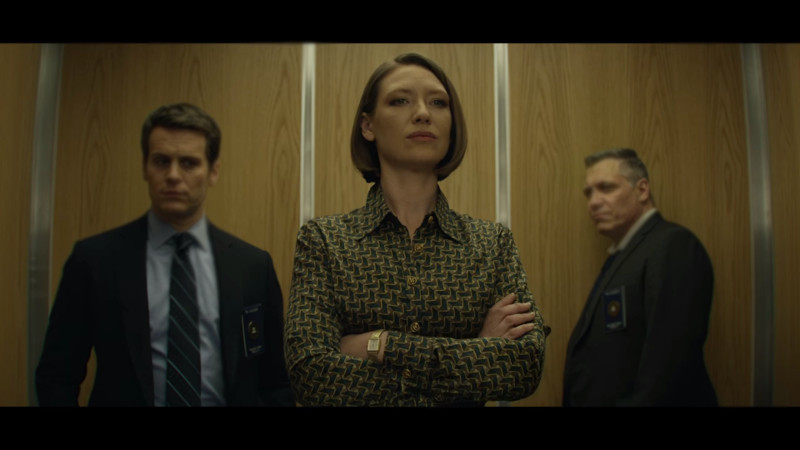
There’s something about the crisp, confident way she talks that had me hooked from her very first scene. Which is why I was delighted to see her stride right up to a woman and kiss her on the mouth pretty early on. For some reason I had assumed I wouldn’t get to The Gay Stuff™ until Season Two, but here we were. Annaliese Stilman, played by Lena Odin, is the first person we see meet Wendy at her level, intellectually, but she’s also not very nice to the new love of my life.
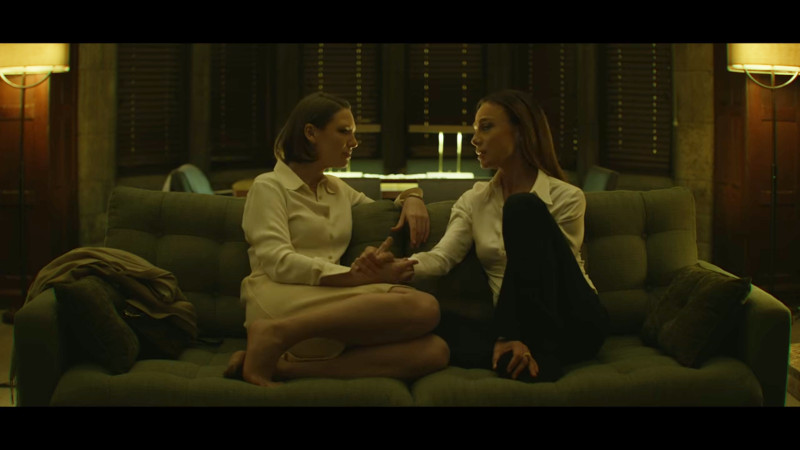
Season One ends that relationship abruptly and mostly off-screen, however, when Wendy decides to move away from Boston to pursue this FBI research gig, which Annaliese said would be a dealbreaker for them.
While Season Two features the sudden disappearance of Debbie and the complete lack of Annaliese, Wendy is finally a bigger part of the picture. Anna Torv really does shine in every scene she’s in, and Wendy’s calm, cool, collected confidence continues to be unshaken.
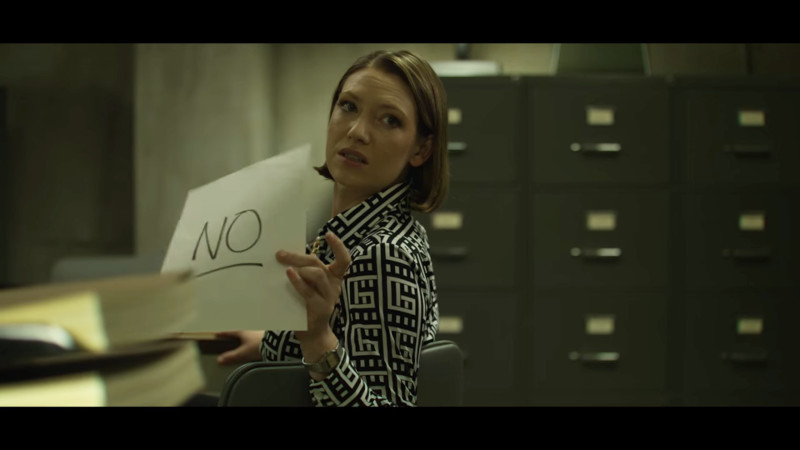
Warning: Mindhunter Season 2 Spoilers ahead!
Until she finds herself in a dive bar, where a tall brunette bartender is playfully telling the locals she plays for the other team. Kay, played by real-life queer woman Lauren Glazier, catches Wendy’s attention and thus sparks the most interesting interpersonal relationship of Season Two. Sorry to Bill’s sociopathic son, and his severely underappreciated wife (who also, thankfully, had a bigger role in season two, though was really put through the ringer).
Wendy and Kay’s story begins when Wendy works up the nerve to go to the dive bar alone to talk to Kay. At first, Kay is a flame, fluid and flickering, almost too bright to look at, while Wendy is solid ice, strong and sturdy but a little cold, hard to get too close to. But the longer the two of them are near each other, the more Wendy melts. And she asks Kay where she should go for fun. She asks, “Is there a place… for us?”
And, listen, I already knew by this point that Anna Torv was a force. But it was that space between “place” and “for us” that really drove it home for me. It’s the first time we see Dr. Wendy Carr hesitate. It’s the first time we see so much as a hint of doubt in her eyes. Her voice almost can’t even commit to the “for us” because there’s a small part of her that suddenly worries if she’s making the right choice, asking this girl this question. And then Kay asks for clarification as to whether Wendy is asking her on a date, and when Wendy sees the flash of playfulness in Kay’s eyes, she melts completely. The unflappable woman, fully flapped. A smile she’s not fully in control of tugs at the edges of her lips and she confirms. A date. And so it begins.
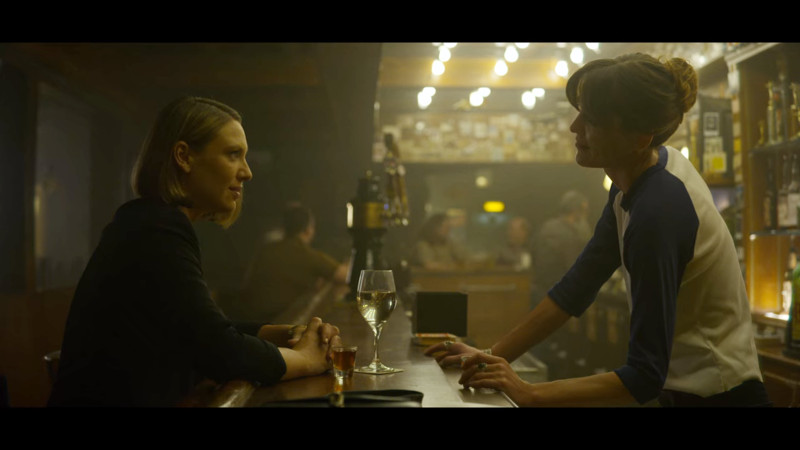
Wendy and Kay’s storyline on Mindhunter is a diamond in a coal mine. It’s like when you go into an antique store and are perusing the useless junk — which is interesting, mind you, but pretty common stuff, nothing you haven’t seen before. And then you stumble upon a priceless artifact. You ask the owner about it but they just shrug and call it junk. They have no idea what they have in their possession. That’s how it feels to have Anna Torv on this show, to have the Wendy and Kay storyline nestled amongst the stories of Holden the Entitled being buried under red tape and Bill the Distracted struggling with work/life balance. It’s almost like Wendy and Kay’s story figured out how to shine despite it all, instead of being carefully curated into something great. Which maybe is unfair; because what we did get was spectacular. But to be honest, as a viewer, it was hard to tell how much of that was on the page and how much of it the actors brought to it. If I had seen Wendy and Kay’s scenes in a vacuum, I would think they were written with great care. But in the context of the show, the time dedicated to the relationship feels inconsequential. This subplot, while phenomenal, feels a bit like an afterthought.
Granted, the cases themselves are interesting. Specifically the case that’s the focus of Season Two, the Atlanta Child Murders, and the systematic racism that kept them from being properly investigated or solved. But for some reason, it seemed like Wendy and Kay were on an entirely different show.
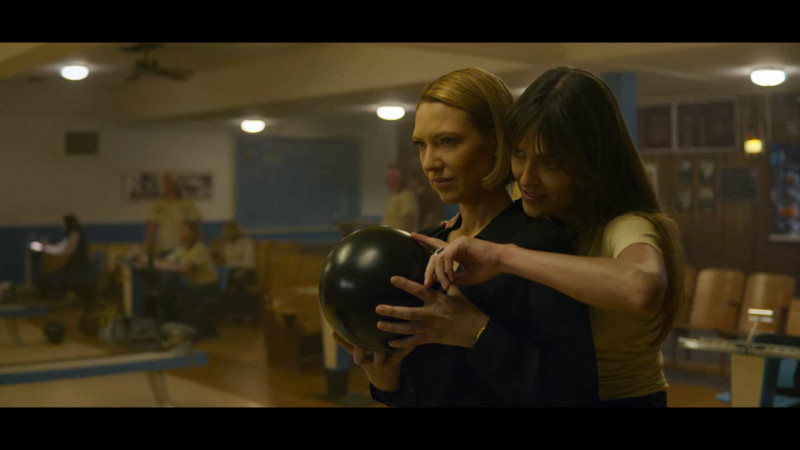
There were things that felt so genuine and authentic about Wendy and Kay. A lot of the progression of their relationship happened off-screen, but they let us know in their own way what stages they were at. And, I mean, there was, of course, the best sex Wendy has ever had.
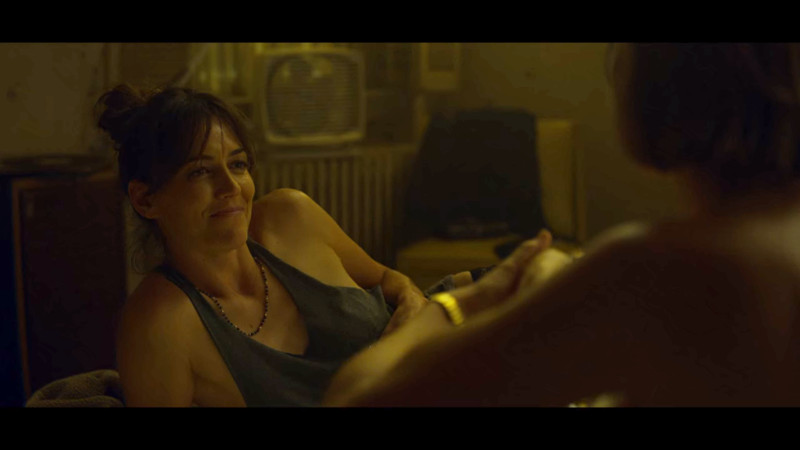
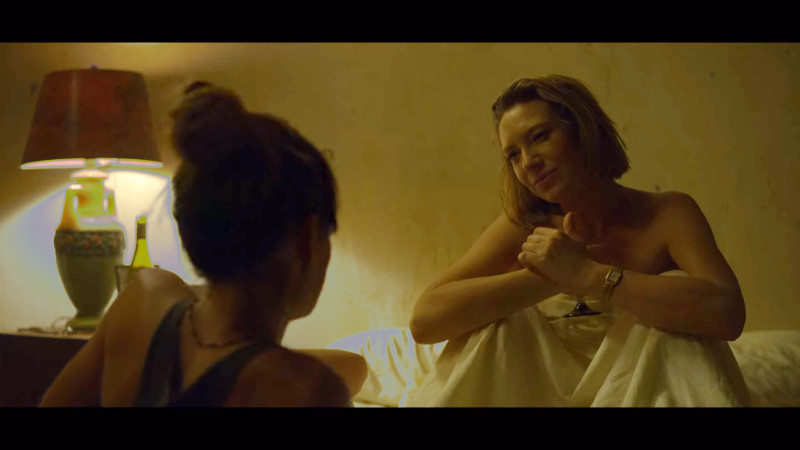
We go from Wendy nervously explaining the etiquette and importance of showing up to a movie on time to Wendy suggesting they skip their dinner plans (if you know what I mean). We go from Wendy being tense as Kay tries to teach her how to bowl to Wendy letting herself into Kay’s apartment, casually pulling out wine glasses, Kay barely needing to ask a question with her words before Wendy can answer it.
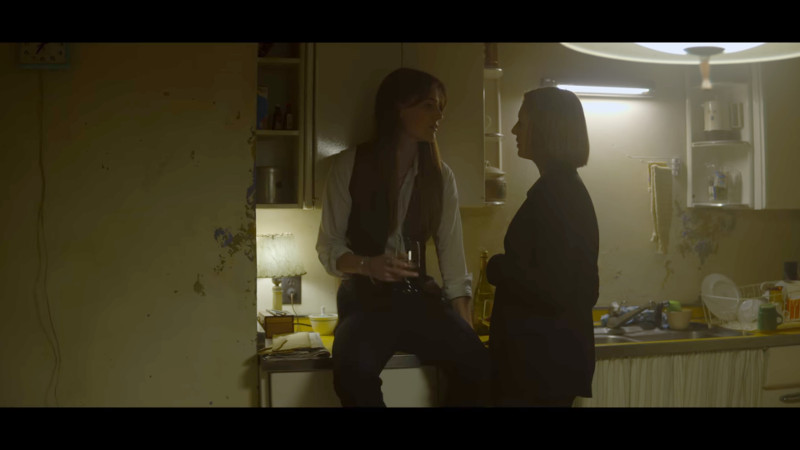
There’s a comfort and an ease to their relationship in the later episodes that struck me as unique. I don’t think we get a lot of authentic-feeling long-term relationships on TV. I think a lot of times the queer relationships on TV are just as sidelined as this story, but they’re like the opposite of the toys in Toy Story; they only come alive when we’re watching them. Any progression in the relationship happens on screen, and since they’re so infrequently on screen, they progress very slowly. But Wendy and Kay don’t give a fuck about their screentime. Their relationship progresses based on the timeline of the story, regardless of how much or how little we see of them.
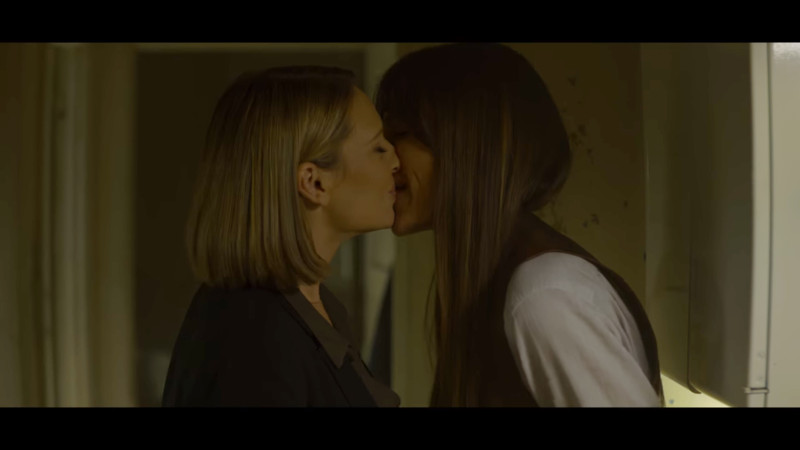
The last we see of Wendy and Kay in Season Two isn’t the most pleasant of exchanges. Wendy has finally let her walls down, but the second she feels threatened, she snaps them right back up. She isn’t in control, like she is when she’s at work, and she isn’t being controlled, like she was in her last toxic relationship. Kay makes her feel out of control, like she’s on a big gay roller coaster, and on one hand she likes it but the most scared part of her always has one eye looking for an exit.
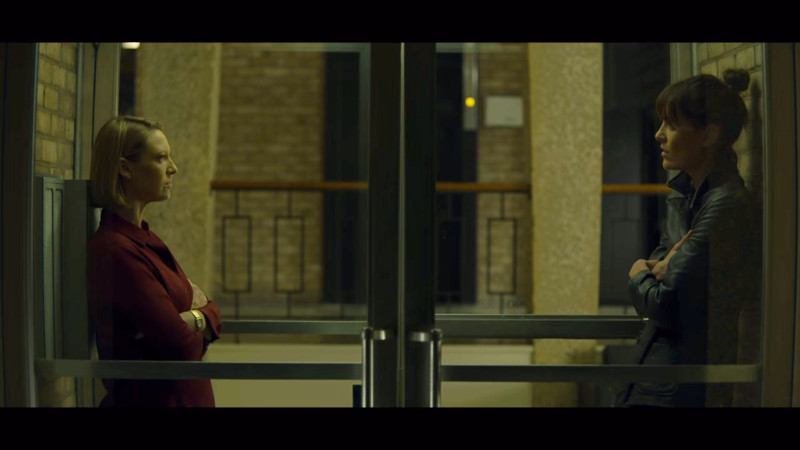
What frustrates me the most is: the show had so many of the right pieces. They had Wendy using her homosexuality (feels weird using that word now but it would have been what they used back then) to bond with a subject, only to later let the men she worked with assume they made it up. They touched on Wendy having been out in Boston but hesitant to be quite as out while she was working at Quantico. They never used homophobia against her, not really. And though Wendy and Kay fought a little about whether Wendy was comfortable being together in public (at least sober) it was never really the focus of their fight. It was of the time, but it wasn’t overly dramatizing it. When it came down to it, Wendy’s problems were similar to that of any queer woman in a male-dominated field today. Trying to keep her private life private, trying to prove herself despite perceptions and assumptions due to her gender, warding off creepy advances at work functions. Trying to work her new relationship into her life, figuring out which spaces it’s safe to be out in, balancing what she wants and needs with what her partner wants and needs. It’s a period piece but a lot of aspects of Wendy’s storyline are, for better or for worse, timeless.
Season One of Mindhunter focused mostly on Holden, and Season Two shifted to be mostly about Bill. So I’m hoping against all odds that if and when we get a third season, it will center Wendy Carr, though I won’t be holding my breath, considering she was in the Season Two finale for all of five seconds. At the very least, I hope Kay doesn’t go the way of Debbie and disappear without so much as a throwaway mention. Because while Mindhunter‘s criminal storylines are more suited for people just dabbling in true crime for the first time, rehashing old stories us veterans have heard time and time again, its queer storyline was something a little more unique, beautifully portrayed by two powerhouse actresses.
You can find the first two seasons of Mindhunter on Netflix, and when you’re done, I’ll be here for you, rocking back and forth to Brass in Pocket by the Pretenders on repeat.

